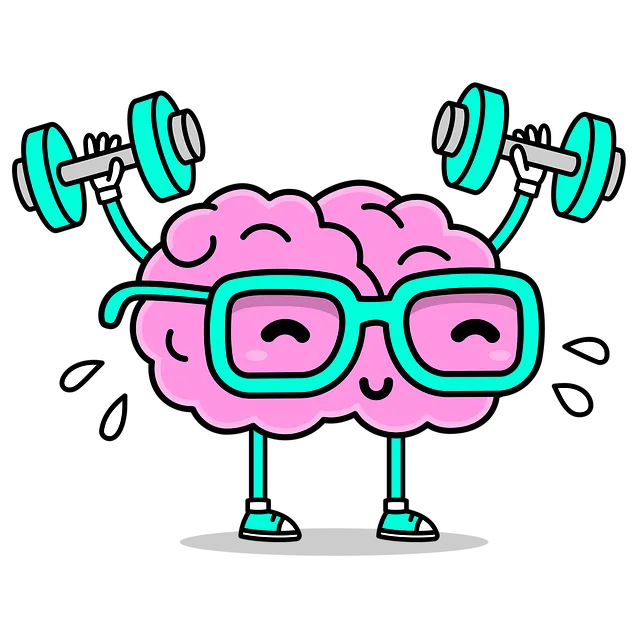Mental wellness apps are in high demand as they offer personalized support and tools for managing mental well-being, supplementing traditional therapy and enhancing Cultural Competency Training programs. The Kaiser Permanente mental health facility in Lafayette is a leader in innovative digital mental health solutions, combining advanced technologies with evidence-based practices to set a new standard for patient care. A comprehensive mental wellness app inspired by this facility integrates features like personalized therapy sessions, secure communication, peer support forums and educational content, addressing stigma and cultural sensitivity. Marketing through partnerships with established healthcare providers and incorporating engaging interactive elements can drive user success and retention in a competitive market.
In today’s fast-paced world, mental wellness app development has emerged as a vital tool to support individuals’ well-being. With growing awareness about mental health, apps offer accessible and personalized solutions. This article explores the importance of such applications, using the Kaiser Permanente Mental Health Facility in Lafayette as a case study, showcasing their innovative approach. We’ll delve into key features, the development process, and marketing strategies that can enhance user engagement, ensuring these apps become powerful allies in navigating mental health journeys, similar to Kaiser’s comprehensive services.
- Understanding the Need for Mental Wellness Apps
- Kaiser Permanente Mental Health Facility Lafayette: A Case Study
- Key Features to Include in a Mental Wellness App
- Development Process: From Concept to Launch
- Marketing and User Engagement Strategies for Mental Wellness Apps
Understanding the Need for Mental Wellness Apps

In today’s fast-paced world, mental wellness is as crucial as physical health, and this understanding has led to a growing demand for accessible and effective solutions. Mental wellness apps cater to this need by offering personalized support, resources, and tools right at users’ fingertips. With institutions like Kaiser Permanente’s mental health facility in Lafayette providing comprehensive care, the market for innovative digital mental health solutions is booming. These apps not only supplement traditional therapy but also empower individuals to take charge of their mental well-being.
The need for these applications extends beyond individual benefits; they are essential tools for healthcare providers as well. Incorporating features like Mood Management and Communication Strategies, mental wellness apps can enhance the effectiveness of Cultural Competency Training programs. By integrating these digital solutions into care plans, healthcare providers can offer more inclusive and tailored support to diverse patient populations.
Kaiser Permanente Mental Health Facility Lafayette: A Case Study

The Kaiser Permanente mental health facility in Lafayette serves as a shining example of how healthcare providers can revolutionize mental wellness support. This facility’s commitment to excellence showcases the integration of cutting-edge technologies and evidence-based practices, setting a new standard for mental healthcare delivery. By focusing on both individual patient care and broader community needs, it demonstrates a holistic approach to addressing mental health challenges.
The Lafayette location benefits from comprehensive training programs, including Cultural Competency Training for healthcare providers, which ensures sensitive and effective support for diverse populations. Additionally, the facility prioritizes Mental Health Awareness through regular workshops and educational sessions, fostering an environment where open conversations about mental wellness are encouraged. This proactive approach extends to Risk Management Planning, a crucial aspect of ensuring safety and stability within the mental health profession.
Key Features to Include in a Mental Wellness App

When developing a mental wellness app, integrating key features that cater to diverse user needs is essential. One such feature is personalized therapy sessions, allowing users to access tailored mental health support based on their unique challenges. These sessions can incorporate techniques like cognitive-behavioral therapy (CBT), mindfulness practices, or even virtual reality exposure therapy, as offered by some Kaiser Permanente mental health facilities like the one in Lafayette. Customization ensures users receive relevant and effective care.
Additionally, Communication Strategies should be integrated to facilitate user-therapist interactions within the app. This could include secure messaging, video conferencing, or peer support forums where users can connect, share experiences, and offer encouragement. Furthermore, addressing Mental Illness Stigma Reduction Efforts through educational content, testimonials, and awareness campaigns within the app can foster a supportive environment. The app should also demonstrate Cultural Sensitivity in Mental Healthcare Practice by offering diverse therapeutic approaches that respect different cultural backgrounds and beliefs.
Development Process: From Concept to Launch

The development process for a mental wellness app begins with a clear understanding of the target audience and their unique needs. Inspired by the comprehensive services offered at the Kaiser Permanente mental health facility in Lafayette, the concept focuses on creating an accessible, user-friendly platform that promotes holistic well-being. This involves integrating evidence-based practices such as Mind Over Matter principles to empower users with coping strategies.
The app’s design and development follow a structured approach, incorporating key features like personalized therapy sessions, mood tracking tools, and social skills training modules. To ensure cultural sensitivity and competency, healthcare provider training is integrated into the app, enabling professionals to offer tailored support that respects diverse backgrounds. Through rigorous testing and user feedback, the app evolves from concept to launch, aiming to create a safe and supportive digital environment for mental health care.
Marketing and User Engagement Strategies for Mental Wellness Apps

Marketing and user engagement are key aspects to ensure the success of a mental wellness app, especially when competing in a market saturated with similar offerings. One effective strategy is to partner with established healthcare providers, such as the Kaiser Permanente mental health facility in Lafayette, to promote the app’s credibility and reach a targeted audience. Utilizing their expertise and network can help gain trust and attract users who are already seeking mental health support.
Additionally, incorporating interactive features and gamification can enhance user engagement. Social Skills Training and Conflict Resolution Techniques modules within the app can encourage active participation, making the experience more enjoyable and beneficial. By combining evidence-based practices with innovative technology, developers can create a unique value proposition that sets their app apart from others, ensuring long-term user retention and satisfaction.
The development of mental wellness apps, such as those modeled after the successful Kaiser Permanente mental health facility in Lafayette, presents a promising avenue to address growing mental health concerns. By incorporating key features like personalized therapy sessions, mindfulness exercises, and community support networks, these apps can provide accessible and effective care. The development process requires careful planning, from initial concept to launch, with ongoing marketing and user engagement strategies to ensure adoption and sustained use. With the right approach, mental wellness apps have the potential to revolutionize access to mental health services, offering a digital solution that complements traditional care models.






